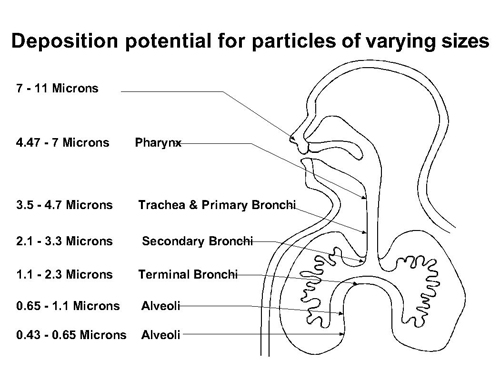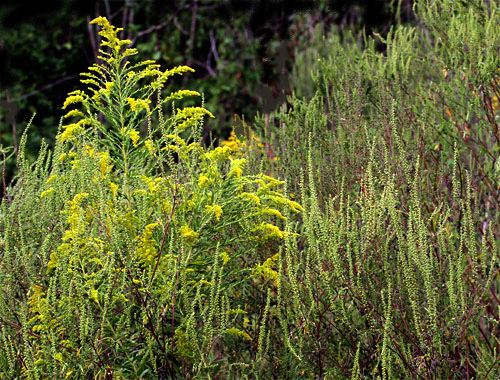'We've got to pause and ask ourselves: How much clean air do we need'?
Intuitively, we understand that air pollution is hazardous for our lungs.
Air pollution is made up of many different things: ozone, carbon monoxide, nitrogen dioxide, particulate matter, sulfur dioxide, lead, toxins, stratospheric ozone depleters such as chlorofluorocarbons (CFCs), halons, and other compounds that include chlorine or bromine and, lastly, greenhouse gasses - the most important of which is carbon dioxide.
Some air pollutants can be organized by the size of its particulate matter. Particulate matter (PM) essentially consists of soot and dust particles smaller than the diameter of a human hair and are present in elevated concentrations when people drive. Some particles are created from exhaust and some are created from the breakdown of tires as we drive. This division of particles into their various sizes is important because they help determine how far the particles can travel in the atmosphere and how easily they are repairable into lungs.
Some air pollutants can be organized by the size of its particulate matter. Particulate matter (PM) essentially consists of soot and dust particles smaller than the diameter of a human hair and are present in elevated concentrations when people drive. Some particles are created from exhaust and some are created from the breakdown of tires as we drive. This division of particles into their various sizes is important because they help determine how far the particles can travel in the atmosphere and how easily they are repairable into lungs.
To clarify further - particulate matter is divided into two classifications:
- PM10, or coarse size particles, with a diameter of less than 10 microns
- PM2.5, or fine size particles, with a diameter of 2.5 microns or less. These particles are less than 1/8th the diameter of a human hair and are easily inhaled deep into lungs
The finer the particles, the deeper the penetration into the lungs and therefore the more danger posed. The American Lung Association believes that PM2.5 represents the most serious threat to our health.
In addition, as of 2002, according to the American Lung Association, approximately 50% of Americans live in areas with unhealthy ozone levels. Ozone poses another type of threat to the lungs as it creates inflammation in the airways. Evidence from observational studies strongly indicates that higher daily ozone concentrations are associated with increased asthma attacks, increased hospital admissions, increased daily mortality, and other markers of morbidity. The consistency and coherence of the evidence for effects upon asthmatics suggests that ozone can make asthma symptoms worse and can increase sensitivity to asthma triggers.
***
What you may not yet have linked together is that air pollution is also bad for your allergies.
During photosynthesis, plants convert light energy into stored chemical energy by consuming carbon dioxide and water.
Carbon dioxide is the primary greenhouse gas emitted through human activities. In 2011, carbon dioxide accounted for about 84% of all U.S. greenhouse gas emissions. The main human activity that emits carbon dioxide is the combustion of fossil fuels (coal, natural gas, and oil) for energy and transportation.
'Associate Director of the Center for Health and the Global Environment at Harvard Medical School Paul Epstein, M.D., M.PH., completed a study on how increased carbon dioxide accelerates and increases pollen production in ragweed.
Based on this study, Epstein believes warming of the earth, and increased CO2 production, may mean more frequent and intense symptoms for the estimated 50 million Americans who suffer from allergies and the approximately 18 million with asthma, which is frequently triggered by allergens. According to the U.S. Centers for Disease Control and Prevention, in 1998, at least 5,438 people died of asthma in this country, and 423,000 were hospitalized for it'.
'Management is nothing more than motivating other people'.
Shade Parade Nashville has the goal of increasing walkability in Nashville primarily through sidewalk production. If our transportation choices in Nashville are restricted to vehicular traffic we may be adding to our already high rates of asthma and allergies in the region.
***
Another important reason to ask Nashville to increase well designed sidewalks!
Shade Parade Nashville has the goal of increasing walkability in Nashville primarily through sidewalk production. If our transportation choices in Nashville are restricted to vehicular traffic we may be adding to our already high rates of asthma and allergies in the region.
***
Another important reason to ask Nashville to increase well designed sidewalks!
Sources:
All orange quotes by Lee Iacocca






No comments:
Post a Comment